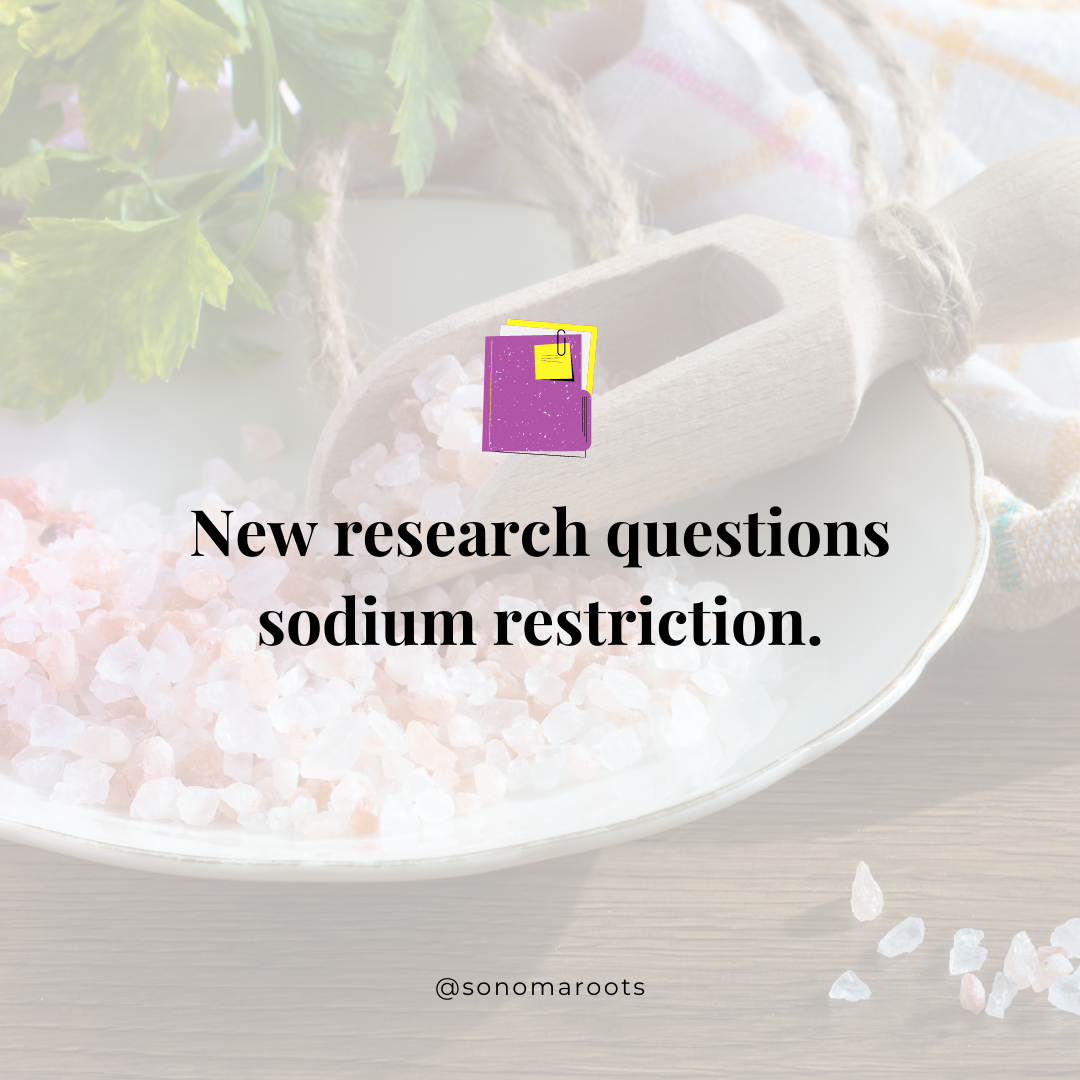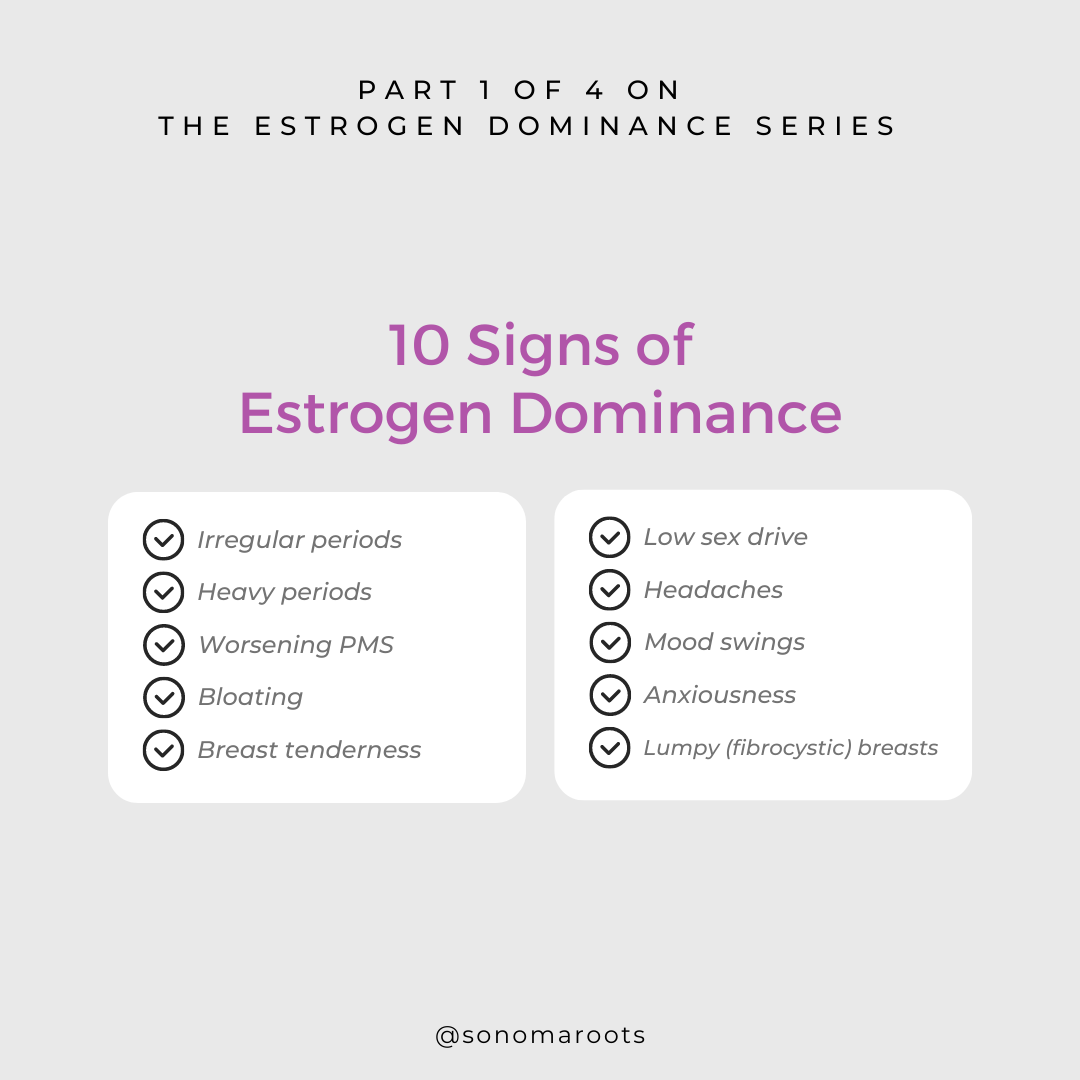|
Salt restriction for heart health?
Most agree that sodium restriction has some effect on lowering blood pressure, but does avoiding salt actually help to reduce the risk of heart disease? And what about other minerals? Do they interact to affect heart health? A study just published in the journal Nutrients asked these questions and came up with some intriguing answers. Researchers looked at data from a large group of people participating in the Framingham Offspring Study—more than 2000 adults between the ages of 30 and 64 who did not have heart disease at baseline. Information was collected from participants about their dietary intake and health status (including heart disease) every 4 years for about 20 years. Here’s what they found:
What can we make of all this? It’s more important to consume a balance of essential minerals than it is to only restrict sodium How do we do that? Avoid processed and packaged foods (these are high in sodium and stripped of other important minerals). Eat plenty of fresh fruits and vegetables, nuts, seeds, and other whole foods. You’ll naturally consume more potassium, magnesium, and calcium without the added sodium. Please remember—this study was a population study of generally healthy individuals. If you’re at a high risk for heart disease, please talk with a healthcare professional for specific nutritional advice. We are here to help! Click through to our website to book an appointment or call! Reference: Pickering RT, Bradlee ML, Singer MR, Moore LL. Higher Intakes of Potassium and Magnesium, but Not Lower Sodium, Reduce Cardiovascular Risk in the Framingham Offspring Study. Nutrients. 2021; 13: 269. [link] What is Nonalcoholic Fatty Liver Disease? It’s called a silent disease because most people have NO symptoms. 25% of all US adults are thought to have it. 60% - 95% of individuals with obesity have it. NAFLD stands for nonalcoholic fatty liver disease. It exists on a spectrum, beginning with simple fatty liver (nonalcoholic fatty liver or NAFL) and in some people progressing to involve inflammation (nonalcoholic steatohepatitis or NASH). In those who develop NASH (the inflamed form), fatty liver can worsen to liver fibrosis (scar tissue) and then liver cirrhosis (end stage). If it advances to the point of cirrhosis, the only treatment is a liver transplant. So, the best case scenario is to recognize fatty liver early enough to reverse it (or at lease keep it from becoming worse). How do you know if you have fatty liver? Here are the top 3 risk factors: Obesity Diabetes Metabolic Syndrome Plenty of people probably have fatty liver without knowing it because it’s not exactly straightforward to diagnose. Bloodwork is the place to start:
The main conventional approach to fatty liver is weight loss, with some doctors recommending weight loss surgery. But with functional medicine approaches, we can do SO MUCH MORE. 7 Root Causes of Nonalcoholic Fatty Liver Disease “Multi-Hit” is how researchers describe the development of nonalcoholic fatty liver disease. We know it’s strongly linked with diabetes and obesity, but functional medicine goes deeper to understand what mechanisms are involved. Here are some of the possible “hits,” or factors that might contribute to fatty liver: 1️⃣Genetics. Some genetic variants make a person more likely to develop fatty liver, and we see a higher risk in Hispanic individuals, followed by non-Hispanic whites and then those of Asian descent. 2️⃣Obesity. With weight gain around the middle (abdominal obesity), fat cells can change and become resistant to fat storage. That means more free fatty acids in circulation, which can accumulate in the liver. 3️⃣Metabolic Syndrome. Insulin resistance is at the center of metabolic syndrome. Cells lose their ability to properly metabolize glucose and fat, again contributing to more free fatty acids being deposited in the liver. 4️⃣Microbiome Changes. Small intestinal bacterial overgrowth (SIBO) has been found in 50% of people with the inflamed version of fatty liver (NASH). Gut dysbiosis may lead to intestinal permeability and the release of endotoxins from the gut—going to the liver where they create inflammation. 5️⃣Mitochondrial Damage. Environmental toxins (like pesticides, heavy metals, or pollutants) can create free radicals that damage liver mitochondria. This can impair fat metabolism in the liver and also lead to inflammation. 6️⃣Impaired Methylation. The cellular process of methylation is involved in exporting fats from the liver. If methylation is impaired (by genetics or exposure to toxins for example), the liver produces less of the antioxidant SAMe, increasing the risk for liver inflammation. 7️⃣Diet & Lifestyle. High intakes of fructose (like high-fructose corn syrup in soda) lead directly to increased free fatty acids that can deposit in the liver. Alcohol is also damaging to liver cells, even if consumed in amounts that are generally considered acceptable. Conventional wisdom says that obesity, diabetes, and metabolic syndrome are all strongly linked with fatty liver disease. The main approach is weight loss. Nutrients to Support Liver Health Conventional wisdom says the key to addressing fatty liver is weight loss. I absolutely agree, but there are ADDITIONAL ways we can support liver health—based on what we know about cellular mechanisms and root causes. Let’s take a look at some key nutritional supplements to consider when it comes to liver health. 💊 S-adenosyl methionine (SAMe). SAMe is a methyl donor and antioxidant that is generally found in high amounts in the liver—but has been found in lower amounts in people with fatty liver. SAMe supplementation supports antioxidant defenses and glutathione levels in the liver. 💊 Berberine. Berberine is an active compound in several herbs and plants. It supports healthy cholesterol metabolism and blood sugar balance—both of which influence liver health. 💊 Omega-3s. Omega-3s are essential fatty acids that play a role in inflammation, liver enzyme metabolism, and many other cellular processes. 💊 Silymarin & Antioxidants. Supplements with antioxidant activity support mitochondrial function and inflammatory pathways. Some top antioxidants that have been studied for liver health include silymarin, resveratrol, astaxanthin, coenzyme Q10, and curcumin. 💊 Probiotics. Not all probiotics are the same. Specific probiotic strains that have shown promise for supporting liver health include L. bulgaris, S. thermophilus, L. rhamnosus GG, and the combination of L. acidophilus and B. lactis. The best approach is to decide on a combination of supplements that is specific to you and based on your health history, labs, and goals. If you’re interested in getting a better understanding of your underlying patterns and a personalized plan, we invite you to become a patient at our practice! All you need to do is click through to our website for details. 4 Habits for Liver Health Here are some diet and lifestyle considerations for anybody at risk for fatty liver disease. 1️⃣ Eat for Blood Sugar Balance. Insulin resistance is central to the development of fatty liver, so avoiding a sugary diet is a top priority. Looking for a liver-friendly diet? Consider the Mediterranean Diet—high in fruits and vegetables and low in saturated fats. 2️⃣ Cut Alcohol. The term “nonalcoholic” fatty liver can be confusing because it implies that alcohol is not involved. But even modest amounts of alcohol can put a strain on the liver. Best case scenario is to dramatically reduce or even eliminate alcohol altogether. 3️⃣ Exercise Regularly. The main conventional approach to fatty liver is weight loss. Exercise is key to weight loss and will help support blood sugar and fatty acid metabolism. 4️⃣ Live Clean. Your liver has to process every chemical, pesticide, and environmental pollutant that enters your body. Choosing organic foods and chemical-free products can decrease the burden, support mitochondrial health, and give your liver a chance to heal. The excellent news? Your body has an amazing capacity to heal. Fatty liver can be reversed—as long as it has not progressed too far and you TAKE ACTION. References:
Maurice J, Manousou P. Non-alcoholic fatty liver disease. Clin Med (Lond). 2018; 18: 245-250. [link] Xu Y, Guo W, Zhang C et al. Herbal Medicine in the Treatment of Non-Alcoholic Fatty Liver Diseases-Efficacy, Action Mechanism, and Clinical Application. Front Pharmacol. 2020; 11: 601. [link] Wigg AJ, Roberts-Thomson IC, Dymock RB, McCarthy PJ, Grose RH, Cummins AG. The role of small intestinal bacterial overgrowth, intestinal permeability, endotoxaemia, and tumour necrosis factor alpha in the pathogenesis of non-alcoholic steatohepatitis. Gut. 2001; 48: 206-211. [link] Cicero AFG, Colletti A, Bellentani S. Nutraceutical Approach to Non-Alcoholic Fatty Liver Disease (NAFLD): The Available Clinical Evidence. Nutrients. 2018; 10: E1153. [link] Noureddin M, Mato JM, Lu SC. Nonalcoholic fatty liver disease: update on pathogenesis, diagnosis, treatment and the role of S-adenosylmethionine. Exp Biol Med (Maywood). 2015; 240: 809-820. [link] By Dr. Danielle:
Each week, I have the pleasure of assisting quality of life protocols for patients experiencing side effects of conventional cancer treatments. My work with Cancer Support Sonoma at the Sonoma Valley Hospital is a humbling experience, one that I do not take for granted. This post is specifically for the patients that I have consulted with that would like to re-visit the melatonin research articles that have I presented at one of our visits. As an overview of melatonin, it's use goes far beyond improving sleep. When it comes to cancer, melatonin has been cited as being effective for reducing the side effects associated with chemotherapy (hair loss, low platelets, nerve pain, weakness, etc) and may have direct inhibitory effects on the formation, growth and spread (metastatic behavior) of breast cancer cell types. While the majority of melatonin research is performed in relation to breast cancer, it has notable adjuvant benefits in prostate, lung, and colon cancers, as well. Below, are several notable articles and research studies on the effect of melatonin on breast cancer cells and prognosis. Melatonin in Cancer Treatment: Current Knowledge and Future Opportunities An Overview of Melatonin in Breast Cancer - Melatonin: an Inhibitor of Breast Cancer Effect of Melatonin in Epithelial Mesenchymal Transition Markers and Invasive Properties of Breast Cancer Stem Cells of Canine and Human Cell Lines Circadian Regulation Metabolic Signaling Mechanisms of Human Breast Cancer Growth by the Nocturnal Melatonin Signal and the Consequences of it's Disruption By Light At Night Susan G. Komen's Description of Melatonin EDITED: Additional Melatonin Articles and Other Cancer Types Role of Melatonin and Cancer Treatment Melatonin Suppresses the Growth of Ovarian Cancer Cell Lines Benefits of Melatonin in Solid Tumors When Used Concurrently With Chemotherapy |
About Our Blog:Author: Categories:
All
Archives:
November 2022
|
|
Shop Hours:
M - Th: 10-5:30pm, Fri 10-2pm |
Stay Connected with Us!
|



 RSS Feed
RSS Feed


